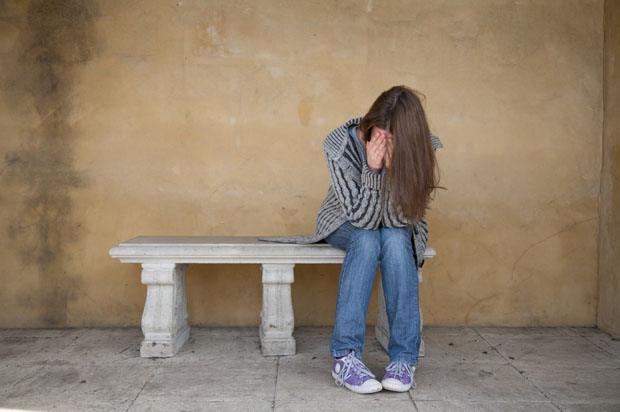Miscarriage: the facts
20% of all pregnancies end in miscarriage (the loss of the foetus before 24 weeks). It’s an upsetting time, but there are always people you can talk to and places you can go to get help. Read on to find out what can cause a miscarriage, what happens and how to cope if you have one.

How do I know I’ve got hepatitis B?
What can cause a miscarriage?
There are many different reasons why someone might miscarry, though abnormalities in the baby’s development (sometimes called chromosomal abnormalities) are most common.
In terms of things that increase the risk of miscarriage, smoking, alcohol and drugs are high on the list, so abstaining from any of those can help to prevent miscarriage. Age is also a factor, with the risk rising slightly as you get older (particularly over 35).
Other possible causes include infection and diseases (such as diabetes), hormonal imbalance and immune responses.
There’s only about a 2-3% chance of losing your baby in the second trimester (14 to 26 weeks), a rate that is much lower than early miscarriage in the first trimester. By week 20, a pregnancy loss is known as a stillbirth, and this can sometimes cause a person to go into labour.
Stillbirth is relatively rare these days and it’s getting even rarer thanks to modern healthcare. There is a minimal chance that a baby born at 22 weeks will survive, but that chance increases each week as things like incubator technology continue to improve.
Can orgasm cause miscarriage?
It isn’t fully understood what triggers a miscarriage, but it is thought the more common causes are natural, not the result of something you might be doing such as having sex during pregnancy, or not resting enough. It doesn’t mean you won’t get pregnant again. It doesn’t mean it was your fault.
It is believed that up to half of all eggs fertilised in the womb will abort spontaneously (another term for miscarriage) before anyone would even know they were pregnant. Known miscarriages most commonly occur between seven and 12 weeks of pregnancy.
What are the signs of miscarriage?
When the foetus dies it is discarded from the uterus. Vaginal bleeding (that lasts between 7 and 10 days) is the most common sign; along with abdominal or lower back pain. If this happens, or you experience stomach pains, see your GP or health visitor immediately. In cases where the miscarriage is incomplete, surgical removal may be necessary.
After a miscarriage, you might experience headaches or have trouble sleeping. You may also experience lack of appetite and fatigue.
What is a threatened miscarriage?
On its own, light bleeding in early pregnancy, which settles without any pain or clotting is called a ‘threatened’ miscarriage and is often nothing to worry about. If you’ve had a threatened miscarriage, you have a good chance of going on to have a normal, healthy baby.
If the bleeding does not settle, however, you will probably need to be referred to the hospital for a scan to check if everything is ok.
Should I rest?
A miscarriage can be a traumatic and frightening experience. Physically, a few days of rest might be advisable, but the emotional impact can continue for some time afterwards. It is also important to note that later pregnancy losses will have a more difficult physical recovery than earlier or first-trimester miscarriages.
It’s common for many people – and their partners – to feel a sense of shock, sadness and grief. As with any type of loss, it can help to open up about the situation in order to make sense of what’s happened.
If you’d prefer to confide in someone outside of your friends or family, The Miscarriage Association provides details of local support groups across the UK. You can also get in touch with the team at The Mix for free and confidential support.
Next Steps
- Chat about this subject on our Discussion Boards.
By The Mix Staff
Updated on 05-Jan-2023
No featured article














